Today, I’ve being measuring the phase noise of the different 27MHz references that I have for my Ku-band LNBF. The LNBF is an Avenger PLL321S-2. I’ve modified it, removing the 27MHz crystal and including a connector for an external 27MHz reference signal. In my lab, I have the following equipment to generate a 27MHz signal:
- OCXO/Si5351A kit. This kit includes a 27MHz OCXO and a Si5351A frequency synthesizer. The Si5351A can act as a buffer and output the OCXO signal directly or generate a 27MHz clock.
- A DF9NP 27MHz PLL and a DF9NP GPSDO. The GPSDO generates a 10MHz signal which is locked to GPS. The PLL generates a 27MHz from the 10MHz signal.
I’ve used linrad to receive the beacon of BADR-5 at 11966.2MHz using different references for the 27MHz signal. The AFC in linrad tries to compensate for any drift in the reference or the satellite beacon. By averaging, one can get good plots of the sideband noise of the beacon. This is far from a proper lab test, but it gives a good idea of the performance of the references.
The first reference tested is the 27MHz OCXO, using the Si5351A as an output buffer. As we can see, the phase noise is quite low. This can be expected for a crystal oscillator.
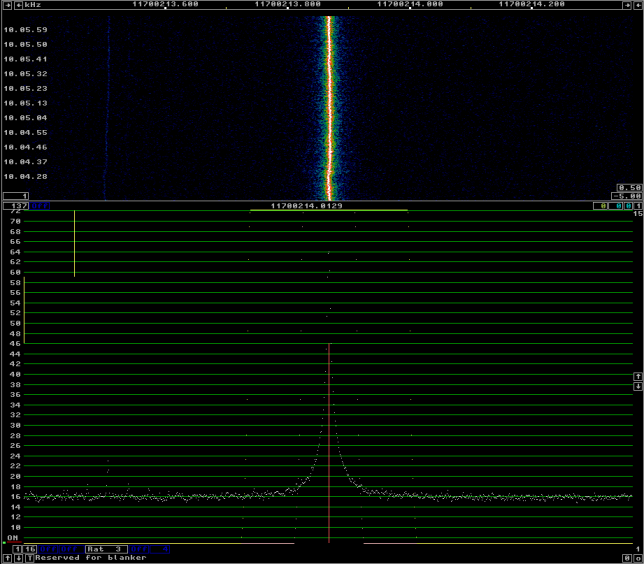
The next reference tested is the Si5351A generating a 27MHz signal. The phase noise is almost the same as before.
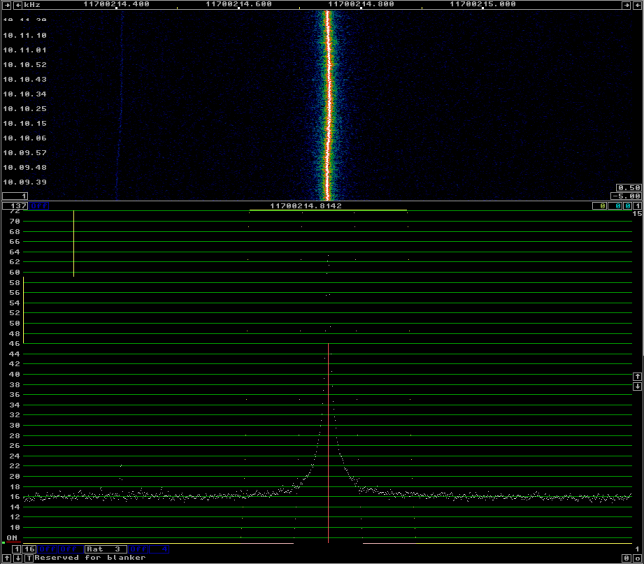
Next, we test the 27MHz PLL in “free-run” mode. Since the PLL contains a 27MHz VCXO, it will oscillate at about 27MHz even if no 10MHz input is supplied. The problem is that the 27MHz drifts a lot. As we can see, the AFC in linrad has trouble to compensate for all this drift, but nevertheless, it seems that the phase noise is also quite good.
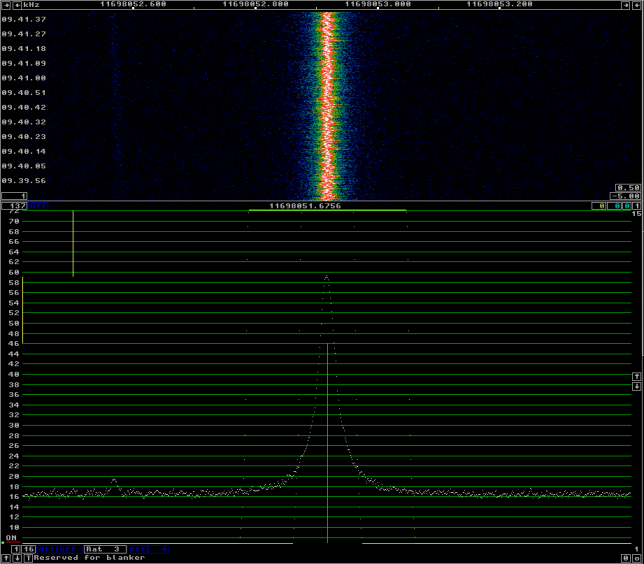
Next, we generate a 10MHz signal with the Si5351A and feed it into the 27MHz PLL. The result is horrible. Perhaps the problem is that the 10MHz is unfiltered. It is not a sine wave, so it could give problems with the PLL.
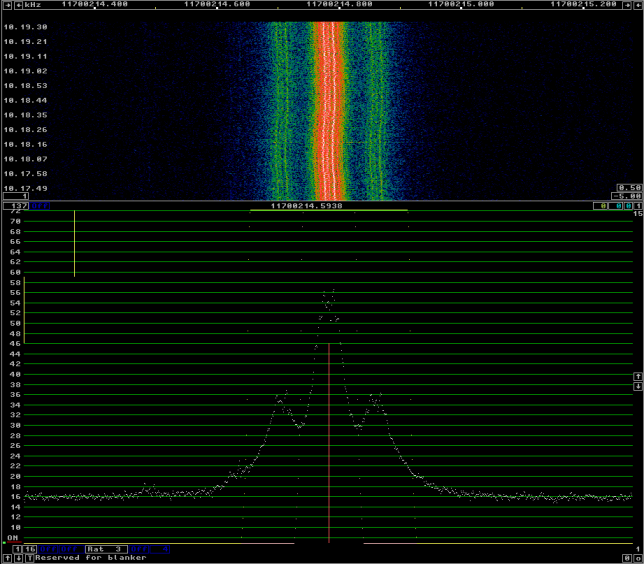
Finally, we test the 27MHz PLL with the 10MHz GPSDO. We see that the phase noise is much higher than before, specially at 100Hz separation or less.
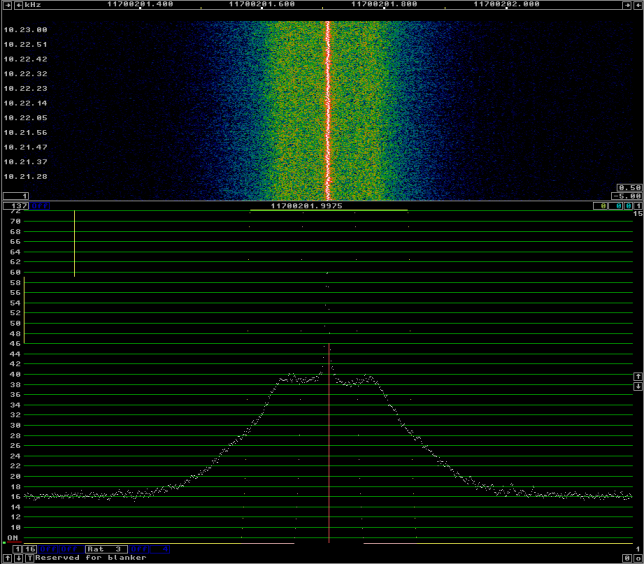
The phase noise of the GPSDO + 27MHz PLL is actually very high. Of course, the LNBF multiplies the 27MHz signal to obtain a 10.6GHz LO, and this increases the phase noise by about 50dB. Thus, it is very important to have a very clean reference, paying special attention to very close separations. Still, the phase noise I get seems too much. I don’t know if this is how these units are supposed to perform or if there is some sort of problem. I’ll have to look into this more carefully.
3 comments